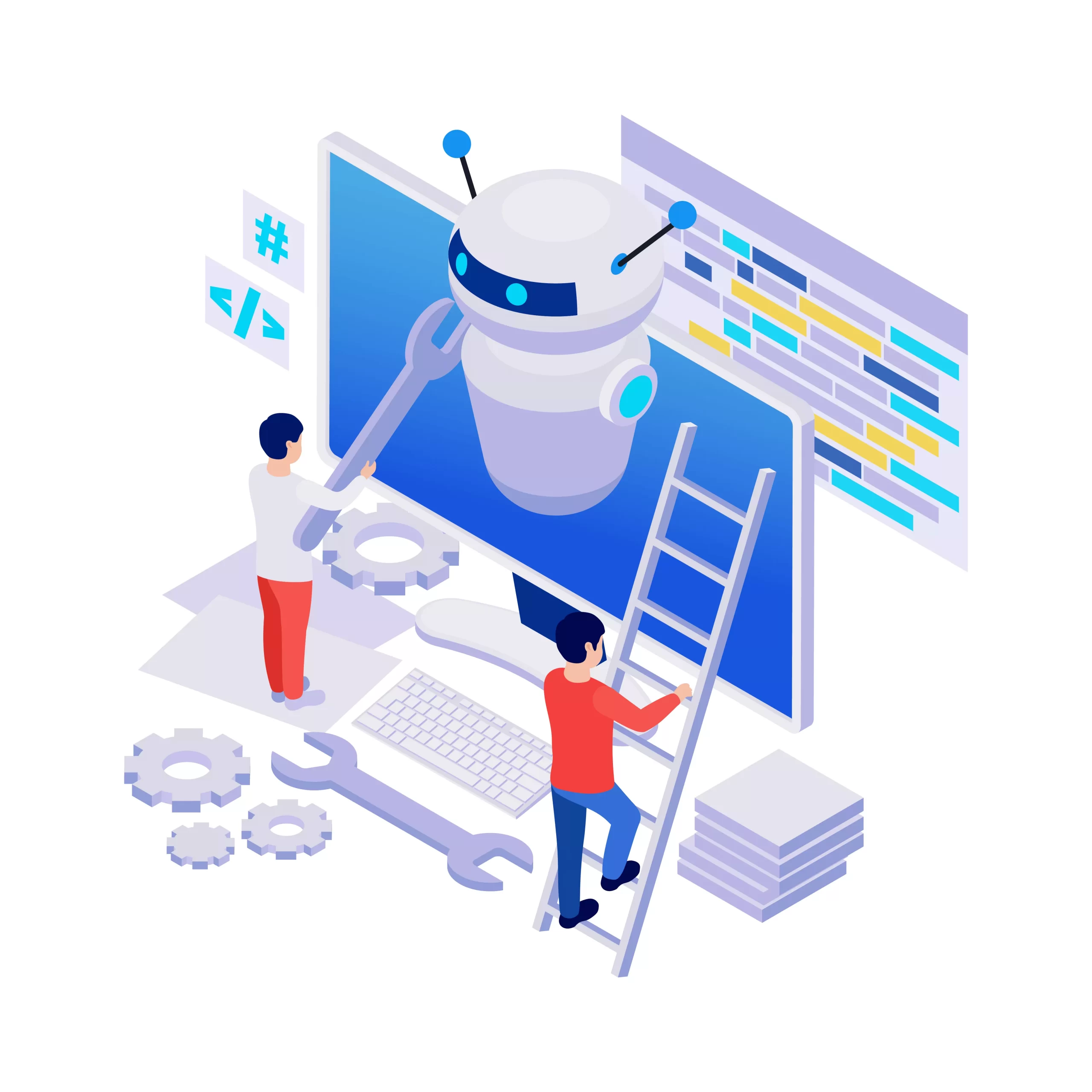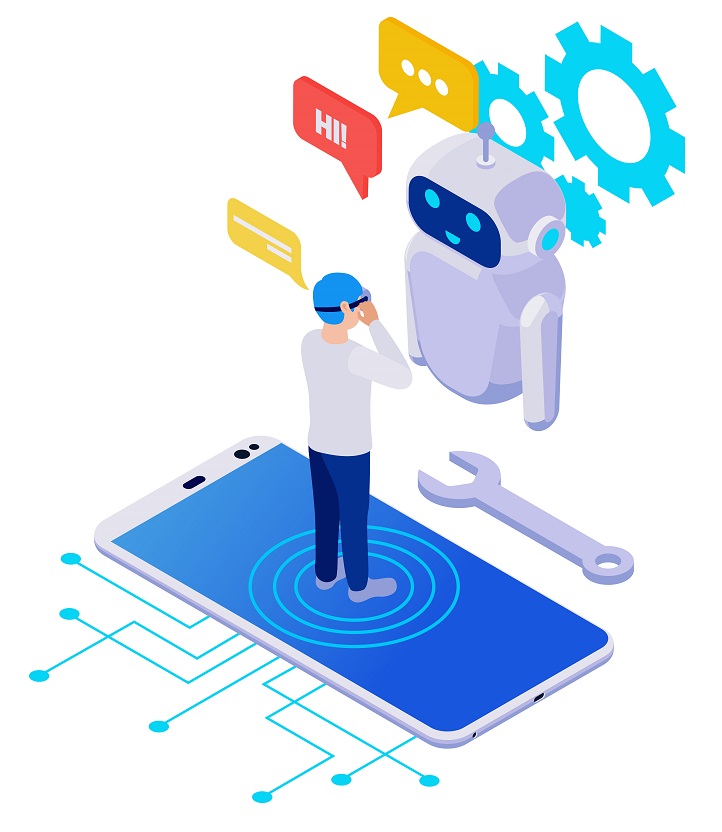Artificial Intelligence (AI) has become a game-changer in the field of digital marketing, revolutionizing the way companies interact with their customers and make data-driven decisions. In this article, we will explore the profound impact of AI on marketing strategies and discuss how companies can leverage AI to automate their digital marketing processes. We will also delve into new AI-powered tools that assist in information search and ad display. Lastly, we will examine why embracing AI at a business management level is essential for companies to stay competitive in today’s dynamic marketplace.
How AI is Revolutionizing Marketing?
AI technology is reshaping the marketing landscape by enabling businesses to analyze vast amounts of data, gain valuable insights, and personalize customer experiences at scale. It allows marketers to understand consumer behavior, predict trends, and optimize campaigns in real time. AI-powered chatbots, voice assistants, and recommendation engines are transforming customer interactions and enhancing engagement.
Automating Digital Marketing Processes with AI
AI technology offers significant opportunities to automate various digital marketing processes, streamlining workflows and improving efficiency. Here are some key areas where AI is revolutionizing digital marketing automation:
Lead Generation and Qualification: AI-powered lead generation tools can analyze vast amounts of data to identify potential customers and qualify leads based on predefined criteria. Machine learning algorithms can analyze past customer interactions, browsing behavior, and demographic data to predict the likelihood of a lead converting into a customer. This helps marketers prioritize and target leads with the highest conversion potential, optimizing resource allocation and improving conversion rates.
Content Creation and Personalization: AI can automate content creation by generating personalized product descriptions, blog articles, social media posts, and email campaigns. Natural Language Generation (NLG) algorithms can analyze data inputs and generate human-like content tailored to specific target segments. This not only saves time but also ensures consistent messaging and personalization at scale.
Social Media Management: AI-powered tools can automate social media management by scheduling posts, monitoring engagement, and analyzing performance metrics. Natural Language Processing (NLP) algorithms can analyze social media conversations, comments, and mentions to gain insights into customer sentiment, brand perception, and emerging trends. AI can also suggest optimal posting times and content topics based on historical data and audience behavior.
Email Marketing Optimization: AI can improve email marketing campaigns by automating tasks such as subject line optimization, content personalization, and send-time optimization. AI algorithms can analyze customer behavior, purchase history, and engagement patterns to deliver highly targeted and relevant email content. This improves open rates, click-through rates, and overall campaign performance.
New Tools for Information Search and Ad Display
AI-powered tools are transforming how companies search for information, target audiences, and display ads. Here are some notable advancements in this area:
Sentiment Analysis and Customer Insights: AI-powered sentiment analysis tools leverage NLP algorithms to understand and interpret the sentiment behind customer reviews, social media conversations, and feedback. This provides valuable insights into customer preferences, opinions, and emerging trends, enabling companies to make data-driven decisions and adjust their marketing strategies accordingly.
Semantic Search and Natural Language Processing: AI-powered search engines use semantic search algorithms to understand the context and intent behind user queries, providing more accurate and relevant search results. Natural Language Processing (NLP) enables advanced search capabilities, allowing users to search using natural language queries instead of specific keywords. This improves the search experience and helps marketers understand customer intent better.
Programmatic Advertising and Ad Optimization: Programmatic advertising platforms leverage AI algorithms to automate ad placement, audience targeting, and ad optimization. These platforms use real-time data analysis to determine the most relevant ad placements and target audiences that are more likely to engage with the ads. AI-powered algorithms continuously optimize ad campaigns, adjusting bidding strategies and creative elements to maximize performance and return on ad spend.
Dynamic Content Personalization: AI-powered tools enable dynamic content personalization, tailoring website content, product recommendations, and ad creatives in real-time based on user behavior, preferences, and historical data. Personalized experiences improve engagement, conversion rates, and customer satisfaction.
Why is SEM important?
SEM is important for several reasons. Firstly, it can offer immediate results and drive targeted traffic to a website. Unlike SEO, which can take months to see results, SEM campaigns can start driving traffic to a website as soon as they’re launched. Secondly, SEM allows for precise targeting and retargeting of potential customers. Advertisers can choose specific keywords, demographics, and locations to display their ads to a highly targeted audience. Finally, SEM can provide valuable data and insights into consumer behavior and search trends. Advertisers can use this information to improve their digital marketing strategies and make data-driven decisions.
Differences between SEO and SEM
While both SEO and SEM aim to improve a website’s visibility on search engines, there are some key differences between the two:
Paid vs organic: SEM involves paid advertising, while SEO focuses on organic search results.
Speed of results: SEM can offer immediate results, while SEO can take months or even years to see results.
Cost: SEM involves a cost-per-click model, where advertisers pay each time someone clicks on their ad. In contrast, SEO is a cost-effective strategy that focuses on optimizing a website for organic search.
Targeting: SEM allows for precise targeting and retargeting of potential customers, while SEO aims to improve a website’s visibility and ranking overall.
Conclusion
Artificial Intelligence is transforming the marketing game by enabling companies to automate processes, gain valuable insights, and deliver personalized experiences to customers. By embracing AI, businesses can optimize their digital marketing efforts, leverage new tools for information search and ad display, and enhance overall business management. Companies that proactively adopt AI technology will gain a competitive edge in the dynamic and data-driven digital marketing landscape.






